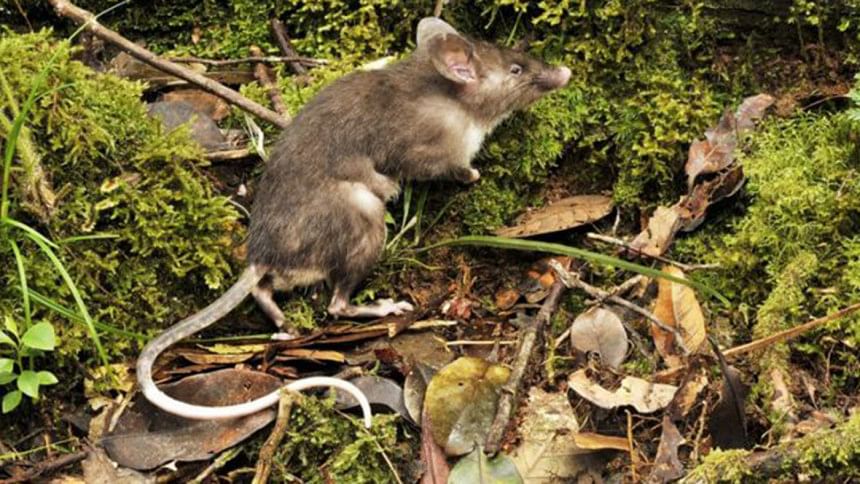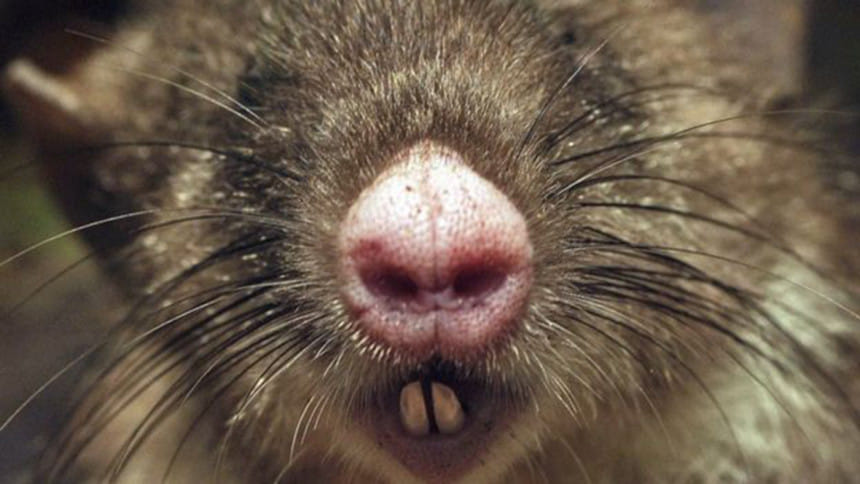New 'hog-nosed rat' discovered in Indonesia

A team of scientists have discovered a new species of rat in Indonesia.
The species, which has been named Hyorhinomys stuempkei - hog-nosed rat - has "distinct and unique features uncommon to other rats", they said.
Five of the rodents were discovered on Sulawesi island earlier in January by researchers from Australia, Indonesia and the US.
Museum Victoria's mammal curator Kevin Rowe said the species was "previously undocumented".
"We were on a mission to survey remote mountains in the area and to put evolution in Asia and Australia into context," Rowe said.
"Nothing is currently known about these rats and how widely they were distributed throughout the forests."
'Remarkable morphological evolution'
Rowe, who specialises in rodent evolution, spent six weeks in Indonesia with other scientists and a group of locals trying to reach the remote forest area.

He also shared with the BBC the "exciting moment" of finding a hog-nosed rat.
"We had been setting up overnight traps for a few days - that was when I stumbled upon a completely new rat," he said.
"I hollered immediately for my colleagues as I knew it was a new species."
The rats appeared "healthy, with full stomachs", weighing at an estimated 250g.
Rowe also added that there were rats on Sulawesi island similar to the newly discovered mammal, but they "weren't the same".
"Last year we discovered amphibious and toothless rats on the island too. There is a remarkable morphological evolution going on there."
He said the rat's uniqueness had "far exceeded expectations".
"Obviously its nostrils which resemble a hog's, are very unique. But it also has a long face and larger ears for a rat of its size and lower teeth which are more in common with shrew rats," he said.
"It also has pubic hairs that are very long and extended which we see in other Australian mammals."
The rats have since been preserved and are lodged in a museum in Indonesia.

 For all latest news, follow The Daily Star's Google News channel.
For all latest news, follow The Daily Star's Google News channel. 



Comments